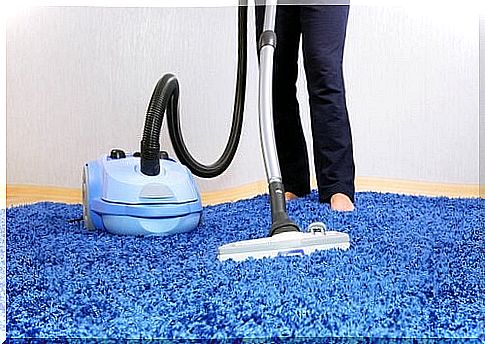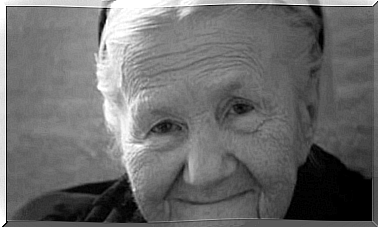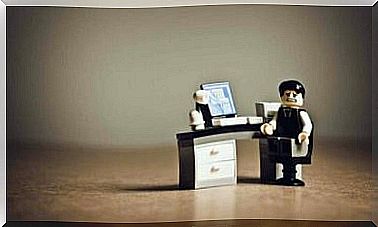Household Cleaning: A Therapy Within Everyone’s Reach

“Cleaning the house” has not only a literal meaning, but also a symbolic one: to get rid of the emotional loads, throw away what we no longer need. It is easy to realize that disorder causes us stress and agitation and house cleaning, carried out as an exercise of “conscious attention” (mindfulness), can offer us important benefits and turn into therapy.
To do this, house cleaning should be understood as a positive event and stress relief exercise. This implies being willing to carry out with another attitude one of the most universal activities and with the worst reputation: cleaning the house.
Some examples of house cleaning as a therapy …
Here are some examples of how domestic cleaning can affect inner cleansing.
- In some cultures, house cleaning is an activity of great value and importance. In Japan, for example, they call it “Oosouji”, which means “deep clean”. They do this cleaning on December 28 to receive the new year with the house clean. The Japanese see it as a bad omen to bring old junk and issues into the new year.
- Some health professionals claim that housekeeping can be relaxing and even meditative. According to psychologist Isabela Pérez-Luna, “Cleaning and tidying have a cathartic function and allow us to get rid of things we feel we no longer need”.

- Consultant Marie Kondo also explains in her book The Magical Power of Tidying that keeping the house tidy directly affects our happiness and mental well-being.
- British actress Helena Bonham Carter in an interview conducted by the Radio Times broadcaster tells us that “cleaning the house and doing housework acts as a therapy”. Director Tim Burton’s former girlfriend and muse assures us that she no longer needs to spend money on therapy sessions after discovering the “therapeutic power of housework.” He says that “having the house in order helps you to keep your head in order” .
Cleaning in Buddhism
Even in Buddhism, cleaning is conceived as a form of meditation to be carried out every day. Buddhist monks view housekeeping as a spiritual exercise through which to cultivate and purify the mind, soul and life.
They do not forget that one of Buddha’s disciples reached nirvana while sweeping. For Buddhists, we are connected with the surrounding environment, which reflects our mind. They explain that when this environment is orderly, so is our mind. Likewise, if we keep our house tidy, our minds will be clear and calm.
They also consider that when cleaning, the mind focuses on the present. Living the “here and now” is one of the keys to happiness and success in life.
Decalogue of household chores for well-being
Keisuke Matsumoto, in his book Cleaning Manual of a Buddhist Monk , exposes a handbook of tips to increase our well-being through house cleaning:
– Handle objects with care. Think that every object has been created with effort and dedication and that it must be respected.
– Be grateful for items that have been useful to us and discard those we don’t need. They can be given new light by giving them to those who can make good use of them.
-It is preferable to do the cleaning during the early hours of the morning. If we start in silence, surrounded by calm, when others are still asleep, our hearts will feel at peace and our minds will be free.

-In the evening, before going to sleep, we have to tidy up and put away the things we have used and messed up during the day. In this way, we will facilitate cleaning the following day.
-If we can clean up in the morning and tidy up in the evening, we will notice that our being will remain free during the day.
-Before cleaning, the windows must be opened and ventilated to purify the air. Feeling the freshness of the air that enters on your skin makes us feel more awake and pure.
– Feeling the air when we ventilate allows us to get in touch with nature. The ventilation is warm and pleasant in spring and autumn, warm in summer and freezing cold in winter. Feeling its goodness and hardness on the skin puts us in contact with our fragility and, at the same time, with the force of life.
-To respect life, that is to prevent insects from proliferating without having to kill them, we must clean immediately after meals.
Instead of repenting about the past or worrying about the future, we must fully live the now and strive not to repent tomorrow. This concept applied to the purification of the soul through cleaning would be: “do not leave for tomorrow what you can clean today”:
– Dividing and taking turns cleaning among all family members helps us to value what others do for us. Understanding that our lives depend on each other helps us to work as a team and carry out activities with others in mind.
The moment of house cleaning, a therapeutic moment
The need to clean and organize the environment around us responds to our need for regeneration. Carrying out housework can be transformed into our moment of daily or weekly meditation. It is about taking advantage of the opportunity to carry out a mindfulness exercise.
For this purpose, we must avoid making house cleaning the moment to solve the problems that worry us or the one in which to watch television, nor to discuss with our partner …
It is necessary to concentrate on the activity, to put order, to be silent and, above all, to pay attention to what you do. This full attention will allow us to reach a meditative state in which there is a reduction in brain waves. In this way, stress and anxiety levels are reduced. This is how domestic cleaning can be transformed into a totally rejuvenating physical and spiritual exercise.









